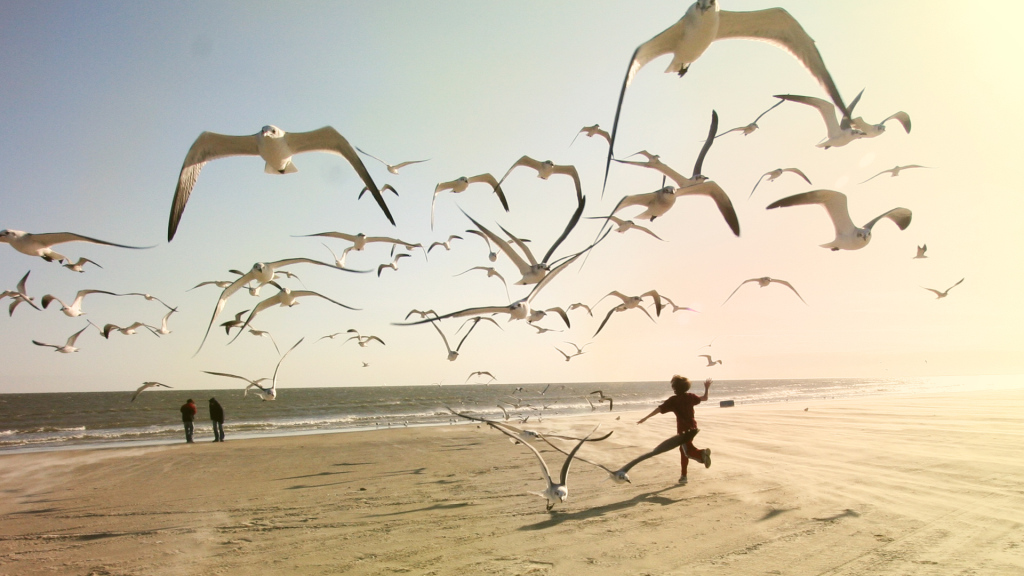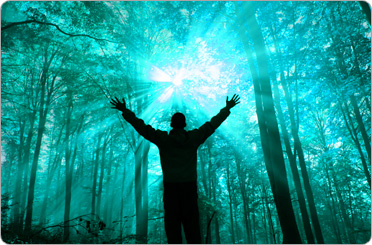Think back to when you were a young child.
What did you want to be when you grew up?
After having lived twenty-eight years I find it to be a funny question. Why would I want to settle on one thing when there is so much to choose from? At its core though, such a question can contain a powerful clue for the you, now. What form of creativity is at the core of your childhood dream to become?
I would imagine that many of us had dreams of doing something ‘big’ and being someone famous. I would imagine that many of us with visions of grandeur in the future had someone tell us that it was impractical, unrealistic, and impossible. “That’s all well and good you want to create in that way, but only a special few make enough money doing it, and it won’t likely be you. Better get a day job and do something more practical.”
Why is it that so few creative people can survive solely from revenue generated by their creative expression? I can’t help but observe countless people, full of creative ideas, short on time due to the necessitation of working an unfulfilling job. What kind of creation results from freeing this dam on the waters of human creativity?
Now some may site poverty mentality, the attitude of the ‘starving artist’, as the cause of such a common experience. “They just don’t value their work enough.” Maybe some think of them as lazy and not willing to make the effort to promote and hype their work. Whatever the root, there is an obvious barrier between doing what we love and doing what pays the bills. How do we break down the wall?
The divide we experience between work  and play, time and creativity, and art and life is a result of a number of collective agreements our culture makes. That is, we are the builders of a wall that keeps us from choosing work that is our greatest passion. One such grouping of agreements is what we call the economy. Our prevalent economic story is that time equals money. What happens to our experience of life when we are constantly counting our minutes in a race to get ahead?
and play, time and creativity, and art and life is a result of a number of collective agreements our culture makes. That is, we are the builders of a wall that keeps us from choosing work that is our greatest passion. One such grouping of agreements is what we call the economy. Our prevalent economic story is that time equals money. What happens to our experience of life when we are constantly counting our minutes in a race to get ahead?
One of the strongest cultural barriers I perceive to have inherited is that of money as a separator of me from my dreams. Thoughts of “I would do that if I could afford to…” and “I would do what I love but there is no money in it.” But are these stories true? Can we re-write them to inspire more individuals into alignment with their joy?
The economy is the sum total of our collective agreements about money and value. If money goes to that which is valued as a society, why is free, unbridled creativity so undervalued and unsupported? It’s hard to argue with the awareness that crisis is emerging at an unprecedented level on Earth. If ever there were a time to shift our economic agreements of value away from external explosions and toward internal implosions, now would be it. Our very survival depends on our ability to be creative.
What do we have to lose by financially supporting creative people to simply be creative? This type of freedom is the freedom from survival anxiety and the worries of making enough to live. It is unlocking the artist’s shackles of forced reduction, freeing them from turning gift into commodity. It is the empowerment to reclaim one’s time as creativity, transforming consumer into friendship. It is the amplification of the full creative potential of humanity’s gifts, at a time of great global need.
 The undying spark of hope reignites with the knowing that the power to shift our collective economic agreements rests within each one of us. It is the daily choices that we as individuals make that have direct affects into the world around us. I choose what I am saying ‘yes’ to, with my dollar. Every dollar helps. Every dollar ripples out into the economic rivers of change. What kind of change do you value?
The undying spark of hope reignites with the knowing that the power to shift our collective economic agreements rests within each one of us. It is the daily choices that we as individuals make that have direct affects into the world around us. I choose what I am saying ‘yes’ to, with my dollar. Every dollar helps. Every dollar ripples out into the economic rivers of change. What kind of change do you value?
We create the world we live in through the choices we make moment-by-moment. At each choice point, we get to ask ourselves, “What kind of world do I want to live in?” Can we co-create a world where our time is our own, our work is our play, and we are all supported in doing what we love? I believe we can.
Gifting money through a felt sense of gratitude is what I like to call monitude. For a number of months now, I have been giving at least ten percent of my financial inflow as monitude, to people that I know personally. This practice is common among religions and is known as tithing.
Whenever I gift monetary support to a friend’s creative expression I am affirming their commitment to cultivating their genius, providing the message that they are supported and appreciated, building a relationship with them, and encouraging them to pursue their passions. These are the pillars of community that have been raised through the expansion of the monetary realm, driven by prevalent economic agreements. Using the tool of money to instead strengthen community shifts these agreements into alignment with the relationships that we value.
I am working on a structure to illustrate the potential of gifting monitude support to people we know. Gone are the days of needing to be ‘the best’ to thrive creatively. We have collectively created enough money to generate the supportive foundation for each of us to do what we love and live comfortable lives. The practice of gifting monitude is the individual taking charge of the change on ground level, rather than waiting for a top-down policy or banking on being the world’s best. It all starts with us releasing our grip, however much we are comfortable with.
I share this story as a means to empower individuals into the knowing that each of us can choose to co-create a new story of money through the way in which we use it. Support your friends’ creativity financially. This is how we transform money from a separator into a unifier. This is how we reunite work with play, money with gift, and joy with service. This is how we support parents to be parents, creatives to create, teachers to teach, inventors to invent, healers to heal, and dreamers to dream.
As more individuals choose to use the creative power of money differently, so too will our total economy shift into alignment with our values of relationship, support, trust, and honesty. Reflect on what you value in the world and ask yourself whether your choices of support (financial or otherwise) mirror that.
Ten percent isn’t much, but it is more than enough to change the world.
*****
Skye Dreamer is co-creating a new story of money through his work with The Collective Tribe and Circle of Gratitude projects. If you wish to participate and support Skye’s contribution to the emerging story of the gift economy, check out The Collective Tribe’s Gift Culture Jam Tour fundraising campaign to learn more!



One thought on “Freeing Creativity: Supporting a World of What We Love”